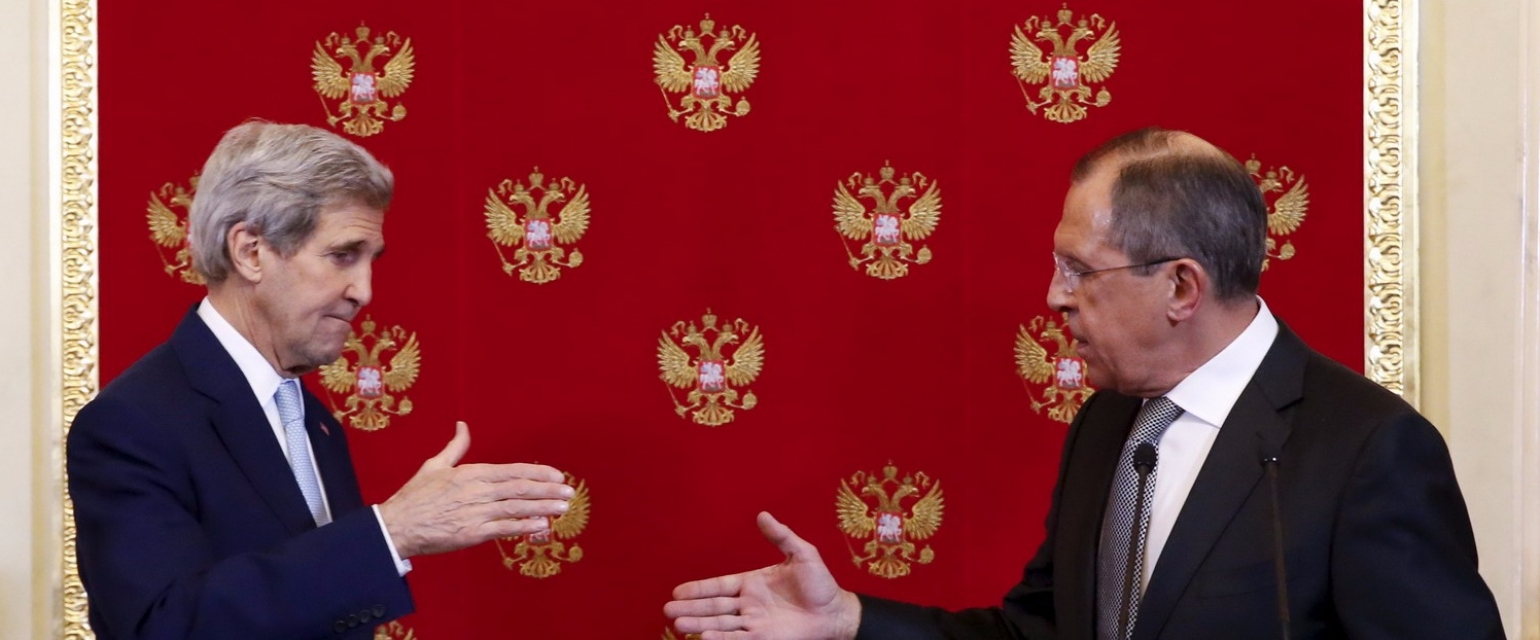

On Dec. 15, Russian Foreign Minister Sergey Lavrov and U.S. Secretary of State John Kerry met in Moscow, after which they both talked with President Vladimir Putin. Then, on Dec. 17, Vladimir Putin held his traditional year-end press conference, during which he answered questions, many of which dealt with foreign policy issues.
John Kerry in Moscow
U.S. Secretary of State John Kerry arrived in Moscow on Dec. 15. No communiqué detailing breakthrough decisions was released after his talks with Lavrov, but this does not mean that the negotiations were a failure.
First, John Kerry made it clear that the world would learn a little later about any specific agreements reached – and he was telling the truth.
On Dec. 17, the UN Security Council adopted a joint Russian-American sponsored UN resolution requiring all states to take measures to stop the sources of financing of terrorists, and in particular – to freeze assets, prohibit entry and transit, and prevent the direct or indirect supply of arms to and by persons and organizations that would be placed on the sanctions list of the UN Security Council.
Secondly, the U.S. Secretary of State came not only to find solutions, but also to seek compromises.
“The world needs that two important nations, the two leading powers, be able to find common ground and agree on the given issues,” said the head of the U.S. State Department.
Of course, he was referring to Syria and Ukraine – the two main topics of his talks with Putin and Lavrov, and his optimism was appropriate.
Theoretically, Moscow and Washington can find common ground on both issues. In Syria, both sides are interested in defeating the Islamic State of Iraq and Greater Syria (ISIS), as well as in preventing the Syrian civil war from turning into a religious or even region-wide conflict.
On the Ukrainian issue, the Americans are not interested in a new spiral of civil war in the Donbas. Although the continued low-intensity conflict will hinder the development of Russian-European dialogue, it will not lead to a Russo-Ukrainian war that might drag in Washington. For these framework compromises to turn into specific arrangements, there are needed not one, not two, but many regular meetings at the highest level.
Lukashenko – a difficult partner
The President of Belarus Alexander Lukashenko’s visit to Moscow was scheduled to take place in late November, but was canceled due to the busy schedules of both presidents. This was the official version. However, there is reason to believe that the initiator of this postponement was the Belarusian President, and this became known just before the cancelled visit.
Continue readinag at Russia Direct
Indeed, Russia is not completely a European country and cannot surmount its un-European living conditions for the objective reasons. The West has difficulty understanding this, though – strangely enough. More importantly, the Russian historic experience is unique – it may not be transposed to other countries, because there are no other countries like Russia.
The current fragmentation of the EU is an ongoing slow surprise for Moscow that it was not prepared for and that was in no way a result of Russia’s doings. Actually, Russia was expecting the EU to eventually consolidate and become an independent global player free of US patronage. Besides, it is easier to trade and relate with the single body in Europe, not facing the perspective of having 28 representatives at the table discussing minor trade or visa issues.
Many opponents of Russia are already regarding this as his surrender of the southeast of Ukraine; however in reality, this is just one more step towards the realization of Russian interests in Ukraine. The goal is to minimize potential damage.
The cosmetic nature of Obama’s reforms is not really down to his desire to stay on good terms with the intelligence community. Neither is he especially keen to keep all Americans under close surveillance. This is more likely a matter of simply accepting the reality.